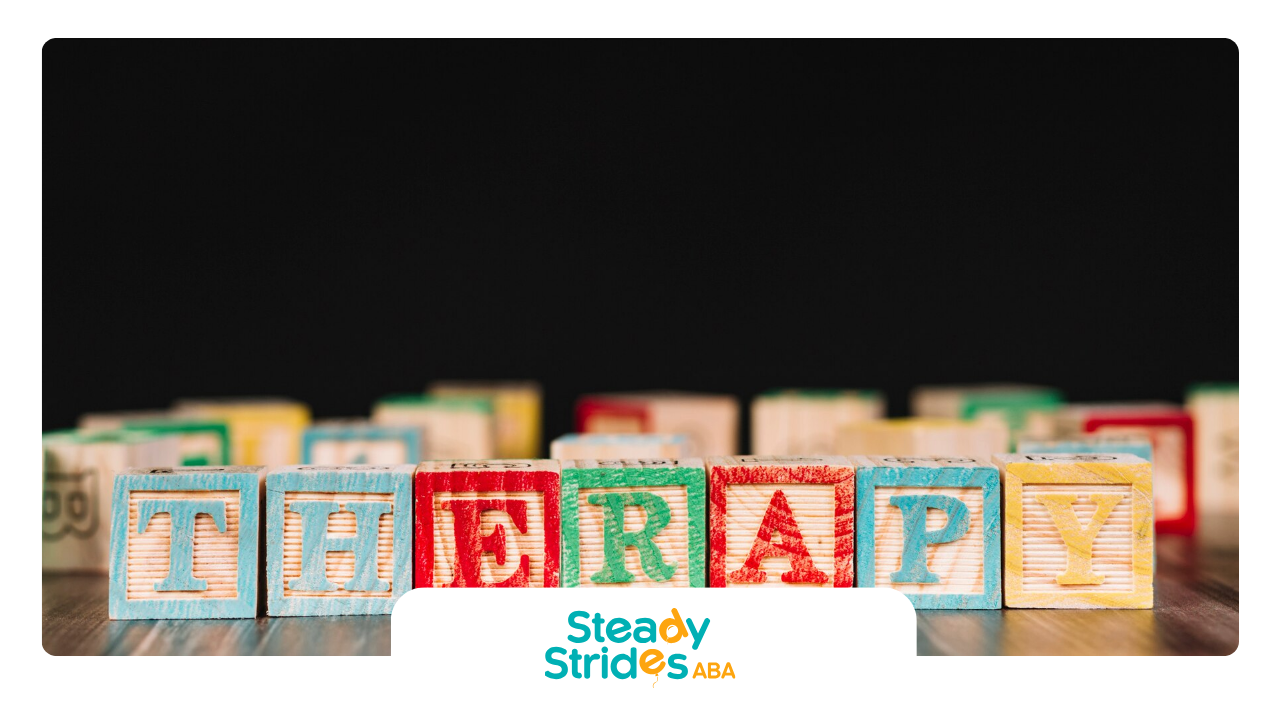Understanding Autism in Texas
What is Autism Spectrum Disorder?
Autism Spectrum Disorder (ASD) is a developmental condition that affects people in different ways. It often involves challenges with social interaction, communication, and repetitive behaviors. In Texas, awareness and understanding of autism have grown a lot, leading to more support and resources for individuals and families dealing with ASD.
Recent stats show that about 1 in 44 kids in the U.S. is diagnosed with autism. This has created a big need for educational resources and services, especially in schools, to support autistic individuals.
Autism Education in Texas
Texas is doing pretty well when it comes to autism education. The state is committed to inclusive education practices and has many specialized institutions for neurodivergent children. Public programs through the Texas Education Agency (TEA) ensure that all eligible kids with disabilities get the education they need, no matter how severe their condition is.
Parents in Texas have access to several resources to help them navigate the educational system for their autistic children. Programs like Texas Project FIRST offer valuable information on special education, created by parents for parents. SPEDTex, the Special Education Information Center, works with various groups to provide resources and support for kids with disabilities.
Here's a quick look at some key parts of the Texas autism education scene:
| Feature | Description |
|---|---|
| Inclusive Education | Schools are committed to inclusive practices |
| Public Programs | TEA's Special Education department ensures access to education for all eligible kids |
| Parent Resources | Texas Project FIRST offers information tailored for parents |
| Special Education Support | SPEDTex collaborates to provide resources and develop services |
For families looking for more help, various autism resources in Texas are available to guide them through educational options and support services. Knowing the educational landscape is crucial for parents and guardians to make informed decisions about their child's education and overall development.
Educational Resources in Texas
Finding the right educational resources for children with autism in Texas can feel like a maze. But don't worry, there are plenty of options to help families find the best fit. Here, we'll break down some key resources, including Texas Autism Academy programs, financial help, and public education programs for kids with autism.
Texas Autism Academy Programs
The
Texas Autism Academy offers full-day programs for kids aged 4 to 18. These programs are designed to meet each child's unique needs, with personalized educational and behavioral plans crafted by Board Certified Behavior Analysts. The academy keeps a low student-to-teacher ratio of 9:2, so every child gets the attention they deserve.
| Age Group | Program Type | Student-to-Teacher Ratio |
|---|---|---|
| 4-18 | Full-Day Programs | 9:2 |
Financial Assistance Options
If you're looking for financial help for autism services in Texas, there are several options. Texas offers support through Medicaid waivers like Home Community-Based Services (HCS) and Community Living Assistance Support Services (CLASS). These waivers can cover things like respite care or minor home modifications. However, they don't directly pay for private autism school tuition.
| Financial Assistance Program | Coverage |
|---|---|
| HCS | Respite care, minor home modifications |
| CLASS | Respite care, minor home modifications |
Public Programs for Autism Education
Texas has various public programs to ensure all kids get the education they need, no matter their disability. The Texas Education Agency (TEA) has a Special Education department that provides resources and support for students with autism. This department is crucial in advocating for students' rights and making sure they have access to necessary educational services.
For more detailed info on educational resources and assistance, check out our article on autism services in Texas. Knowing your options can help you make the best decisions for your child's education.
Support Services in Texas
In Texas, there's a bunch of support services to help folks with autism and their families. From social skills training to resources for parents, there's a lot out there to make life a bit easier.
Social Skills Training Programs
Social skills training is a big deal for autistic kids. It helps them get better at talking to others, making friends, and handling everyday stuff. These programs are all over Texas and are made just for kids on the autism spectrum. They include activities that help kids practice social skills in real-life situations.
| Program Type | Description |
|---|---|
| Group Sessions | Focus on making friends and teamwork |
| Individual Training | Personalized to fit specific needs |
| Community Activities | Practice social skills in real-world settings |
Resources for Parents and Families
Parents and families are the backbone of support for kids with autism. There are tons of resources to help them understand and support their kids better. One great resource is Texas Project FIRST, which offers info on special education, made by parents for parents.
Texas Parent to Parent also has a library full of info on self-care, advocacy, and Medicaid waivers.
It's a goldmine for families looking for guidance on raising a child with special health care needs.
| Resource Type | Description |
|---|---|
| Texas Project FIRST | Special education info for parents |
| Texas Parent to Parent Library | Covers topics for families with special health care needs |
| Local Resources | Lists resources by area |
Special Education Information Centers
Special Education Information Centers in Texas are a lifeline for families of kids with disabilities. SPEDTex, a team effort by various groups, offers resources to help develop and deliver services to kids with disabilities. These centers give parents the knowledge they need to advocate for their kids.
Families can find resources tailored to their location, so they get the most relevant info. Resources are sorted by area, including places like Amarillo, Austin, and Houston.
Using these support services, parents and families can better meet the needs of their kids with autism, creating a more supportive environment for their growth and development.
Transition Services in Texas
Helping kids with Autism Spectrum Disorder (ASD) in Texas get ready for adult life is a big deal. Transition services are all about prepping them for what's next, like jobs and being part of the community.
Why Transition Planning Matters
The law says schools have to help kids with disabilities plan for the future. Starting at age 14, or even earlier if needed, kids getting special education need a transition plan in their Individualized Education Program (IEP). This plan makes sure they learn the skills they need for life after school, like getting a job and living on their own.
Vocational Training Opportunities
In Texas, some kids start learning job skills as early as middle school. Others might join an “18+” or “Transition” program after they finish school without a diploma. These programs help with job skills, finding more education, and learning life skills like managing money and getting along with others.
Schools often offer vocational classes either at the high school or at special vocational schools. These classes teach career-specific skills to help students get ready for adult life.
| Program Type | What It Offers |
|---|---|
| Middle School Vocational Training | Early job skills development opportunities. |
| 18+ or Transition Programs | Help for students with certificates of attendance, focusing on job readiness and life skills. |
| Vocational Classes | Career-specific training offered in high schools or specialized schools. |
Community Support for Transition
Community support is super important for helping kids with ASD transition smoothly. Parents can learn about transition services by checking out their school district's website, talking to the special education department, or connecting with other parents. Community groups and programs also offer great resources and support for families.
School Staffing in Texas
Staffing is key to making sure students with autism get the help they need. In Texas, knowing how special education staffing works is a must for parents, teachers, and anyone involved in autism education.
Special Education Staffing Overview
In Texas, the average setup for special education staffing is
one teacher for every 15 special education students. When you add in educational aides, it’s about one special education staff member for every seven students. This gives a basic idea of how staffing levels are set across the state.
| Staffing Type | Ratio |
|---|---|
| Teacher to Students | 1:15 |
| Staff to Students (including aides) | 1:7 |
This setup aims to make sure students get quality teaching and personalized support that fits their needs.
Assessment Staff Roles
Assessment staff are super important in Texas’s special education system. These folks include:
- Educational Diagnosticians
- Licensed Specialists in School Psychology (LSSPs)
- Speech Language Pathologists (SLPs)
- Speech Language Pathology Assistants (SLPAs)
How many assessment staff are on each campus depends on the number of students and how much time these pros spend on assessments. This makes sure assessments are thorough and that the right interventions are developed for each student.
Guidelines for Staffing by Program
Texas districts are encouraged to set up their own guidelines for staffing by program. These guidelines help principals and special education staff make smart staffing decisions each year. Matching special education staffing with recommended benchmarks is key for delivering quality teaching and support across all programs.
By rethinking staffing in special education settings, schools can give the right support to students while sticking to their instructional programs. This rethinking boosts schools' ability to meet the diverse needs of students getting special education services. Checking out current staffing practices is crucial for making sure all special education students have access to effective teaching programs.
Learning Styles for Autistic Kids
Getting a handle on how autistic kids learn can make a world of difference in their education. Each child has their own way of soaking up information. Let's break down some solid strategies for visual, auditory, kinesthetic, and read/write learners.
Visual Learning Strategies
A lot of autistic kids are visual learners. They thrive on seeing things to understand them. Tools like video modeling, graphic organizers, picture schedules, diagrams, and written instructions can be game-changers. These tools help them grasp and remember new stuff better.
| Visual Learning Tools | Why They Work |
|---|---|
| Video Modeling | Shows concepts in action |
| Graphic Organizers | Keeps thoughts and ideas in order |
| Picture Schedules | Makes routines clear |
| Diagrams | Breaks down complex info |
| Written Instructions | Gives clear steps for tasks |
Auditory Learning Techniques
Some autistic kids learn best by listening. For these kids, repetition, talking things out, recording lessons, and reading aloud can be super helpful. Even some quiet background music can make a difference in keeping them focused.
| Auditory Learning Strategies | How They Help |
|---|---|
| Repetition | Reinforces learning through practice |
| Verbal Discourse | Boosts active listening and engagement |
| Recording Lessons | Allows for review and reinforcement |
| Reading Aloud | Enhances understanding through hearing |
| Quiet Background Music | Reduces distractions and calms the mind |
Kinesthetic and Read/Write Learners
Kinesthetic learners need to move and touch to learn. They might find traditional classrooms tough but can shine with outdoor learning, hands-on experiments, and movement breaks.
Read/write learners love reading and writing. They do well with note-taking, lots of writing opportunities, and written materials like discussion boards. Setting up their learning environment to fit these preferences can really help.
| Kinesthetic Learning Strategies | Read/Write Learning Strategies |
|---|---|
| Outdoor Learning | Engages through movement and exploration |
| Hands-on Experiments | Supports learning through doing |
| Movement Breaks | Helps manage energy and focus |
| Note-taking | Encourages retention of information |
| Discussion Boards | Promotes written communication and expression |
Using these strategies can make a big difference for autistic kids, helping them do better in school.












